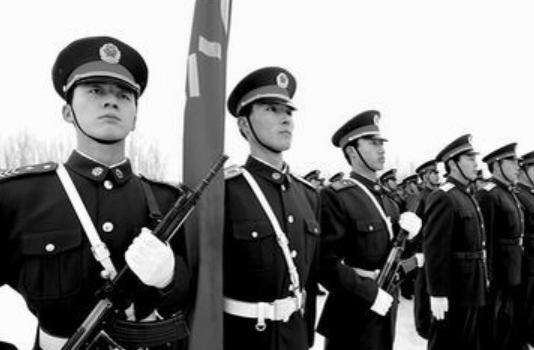At the beginning of the founding of New China in 1949, Xinjiang was still under the control of the Kuomintang, and everyone felt that China's territory could not lack such a large area, but Xinjiang was high and long, and it was impossible to be liberated in a short period of time. At the end of the year, another piece of good news also reached the ears of the people of the whole country, the peaceful liberation of Xinjiang!

The liberation of Xinjiang is a great thing, Xinjiang has a full 200,000 troops, in the face of such a huge number of troops, it is fortunate and unfortunate, in such a remote place, coupled with the extreme shortage of local materials in Xinjiang, the supply of so many troops is the first problem that needs to be solved. The newly founded new China had more than enough heart and insufficient strength and wanted to lend a helping hand, but the pot had to distribute just a little rice to everyone, and on average, the army in Xinjiang did not have much grain at all.
Faced with a shortage of material supplies, will the Communist army in Xinjiang have to give up support for them? The answer is no, Xinjiang's geographical location determines that the number of troops here must be a huge number, Xinjiang is located at the junction of China and other countries, once the foreign invasion, must first pass through this area of Xinjiang, once Xinjiang's military strength is not enough to support the invasion of foreign enemies, the consequences are unimaginable. Therefore, the problem of material supply in Xinjiang must be solved. Then the problem is that xinjiang's roads have not yet been built, let alone railways, and materials cannot be transported at all. At this time, Premier Zhou spoke that in a situation like Xinjiang, it is impossible to maintain food and clothing through external funding, and the only way to go is to achieve self-sufficiency.
Since the problem of resource shortage in Xinjiang has a direction to be solved, the central authorities immediately formulated relevant policies so that the officers and men of the armed forces in Xinjiang have a basis to follow. The original intention of the promulgation of the policy is that the resources of the interior are not a long-term solution, and if you want the army in Xinjiang to develop peacefully and steadily, it is the only way to generate income by yourself. Second, after the development of production in Xinjiang, it can change the damage caused by local wars and develop and build the economy of Xinjiang.
If Xinjiang starts its own production, it will not only be able to solve the problem of material needs of the local army, but also feed back to the central government, which is a policy of benefit and no harm. Therefore, after seeing the promulgation of such a policy by the central authorities, the local garrison officers and men in Xinjiang were very energetic, because the material problem in Xinjiang finally had a general direction for solving.
The direction is there, where are the people who perform. However, coincidentally, the 120th Division and the 359th Brigade, which led the construction of Nanniwan at that time, were in the Xinjiang region and had rich experience in reclamation before, and the construction of Xinjiang began to be in full swing. Under the leadership of experienced troops, all Xinjiang soldiers joined the reclamation team.
In 1952, Chairman Mao took the lead in formulating policies. According to the details of the policy, only a small part of the number of officers and soldiers stationed in the frontier of Xinjiang's local 200,000 officers and men is retained, and the others begin the construction and development work in Xinjiang on the spot, that is, change jobs, and finally establish the Xinjiang Military Region Production and Construction Corps, pushing Xinjiang's construction and development to a new height.
Chairman Mao's policy can be described as far-sighted, the self-sufficiency of the Xinjiang army has directly changed the social landscape of Xinjiang, and under the continuous development of the agricultural economy, Xinjiang has completely broken away from its original state of poverty. Nowadays, Xinjiang has used the world's leading agricultural machinery and equipment, and the materials produced not only meet the local needs, but also have enough means of production to be transported to all parts of the country, creating great wealth for the people of Xinjiang, which is their own labor income.